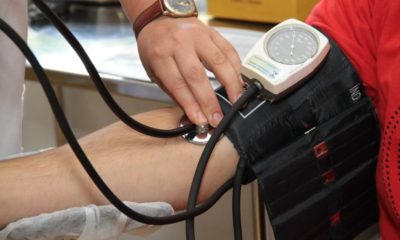Biotech
Investing in Respiratory Therapies: Saving 30 Million Euros per Year
According to the consulting firm’s report, the current annual increase in the number of patients requiring respiratory therapy is, on average, between 8% and 12%. Funding does not follow the same line. In this section, the increase contemplated in budgets and tenders, since it is a public-private partnership, is only 3%. This percentage is equivalent to providing care for only 30% of new patients.

Respiratory therapies mark the future of healthcare. The personalization of these therapies, moving away from a closed and static model, would improve the capacity of the healthcare system. These changes would result in a minimum budget saving of 30 million euros and would improve patient care, according to a report by EY.
Due to the pandemic context, added to the chronicity, smoking, and the aging of the population, it is considered an increased risk that someone receives respiratory therapy for the first time in Spain: a circumstance that generates greater economic stress for the healthcare system.
The EY report stresses the need to make clinical care more specific and proposes segmenting care, which would lead to better care for the citizen. It also addresses the current management of the so-called “non-compliant patient”. In this regard, it is claimed that, with more personalized treatment, patient loyalty would increase as they would feel better cared for.
Read more on the subject and find the most important financial news in the world with the Born2Invest mobile app.
According to the consultant’s report, the annual evolution of patients is currently between 8% and 12% on average, but financing does not follow the same line
The resulting savings would de-stress healthcare services due to fewer visits and hospitalizations. EY also proposes to increase the financial resources allocated to respiratory therapies, which would guarantee the quality of the service for a population increasingly exposed to these treatments.
According to the consulting firm’s report, the current annual increase in the number of patients requiring respiratory therapy is, on average, between 8% and 12%. Funding does not follow the same line. In this section, the increase contemplated in budgets and tenders, since it is a public-private partnership, is only 3%. This percentage is equivalent to providing care for only 30% of new patients.
The autonomous communities apply different healthcare policies, a fact which puts the equity of citizens at risk
The management of public competencies is an added problem. In Spain, the autonomous communities apply different health policies with respect to these therapies, and the equity of citizens in accessing treatments with the same quality standards is put at risk.
The transition proposed by EY, evolving towards the personalization of respiratory therapies, would put Spain in the same context as other countries in the region. In these cases, the patient assumes the responsibility of deciding which service proposal is best suited to his or her situation.
__
(Featured image by Sharon McCutcheon via Unsplash)
DISCLAIMER: This article was written by a third party contributor and does not reflect the opinion of Born2Invest, its management, staff or its associates. Please review our disclaimer for more information.
This article may include forward-looking statements. These forward-looking statements generally are identified by the words “believe,” “project,” “estimate,” “become,” “plan,” “will,” and similar expressions. These forward-looking statements involve known and unknown risks as well as uncertainties, including those discussed in the following cautionary statements and elsewhere in this article and on this site. Although the Company may believe that its expectations are based on reasonable assumptions, the actual results that the Company may achieve may differ materially from any forward-looking statements, which reflect the opinions of the management of the Company only as of the date hereof. Additionally, please make sure to read these important disclosures.
First published in PlantaDoce, a third-party contributor translated and adapted the article from the original. In case of discrepancy, the original will prevail.
Although we made reasonable efforts to provide accurate translations, some parts may be incorrect. Born2Invest assumes no responsibility for errors, omissions or ambiguities in the translations provided on this website. Any person or entity relying on translated content does so at their own risk. Born2Invest is not responsible for losses caused by such reliance on the accuracy or reliability of translated information. If you wish to report an error or inaccuracy in the translation, we encourage you to contact us.

-

 Biotech2 weeks ago
Biotech2 weeks agoAsebio 2024: Driving Biotechnology as a Pillar of Spain and Europe’s Strategic Future
-

 Business12 hours ago
Business12 hours agoDow Jones Nears New High as Historic Signals Flash Caution
-

 Business1 week ago
Business1 week agoFed Holds Interest Rates Steady Amid Solid Economic Indicators
-

 Fintech5 days ago
Fintech5 days agoMuzinich and Nao Partner to Open Private Credit Fund to Retail Investors
























